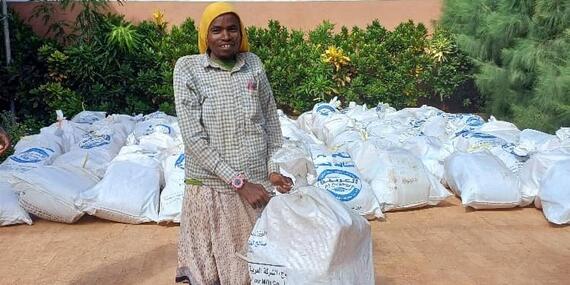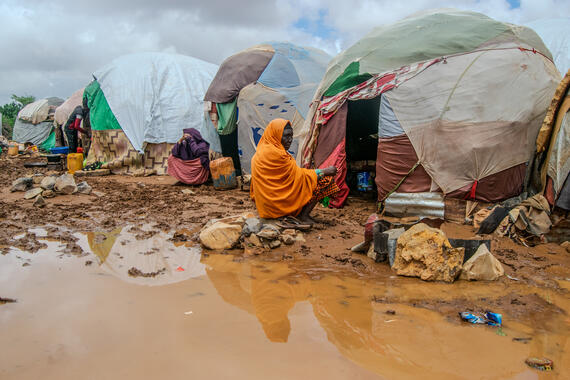Somalia: Transforming lives affected by El Niño floods

Issaq, 27, is just one of more than 16,000 homeless people whose lives were turned around through an El Niño-related shelter project in Somalia.
Funded by OCHA’s Somalia Humanitarian Fund and implemented by the non-governmental organization Dignity First Somalia (DFS), the shelter project was designed to provide emergency non-food items and shelter for 16,200 internally displaced people affected by the devastating El Niño-induced floods in late 2023.
Somalia’s population has been battered by climate extremes; in just a few months the worst drought in decades was followed by the largest floods in generations. Last year, heavy flooding during Somalia’s second rainy season, known as deyr, caused destruction and despair for more than 2.5 million people and inundated at least 1.5 million hectares of farmland. This was worsened by El Niño and a positive Indian Ocean Dipole.
In response, DFS swiftly initiated the six-month emergency shelter project, aiming to provide critically needed shelter and lift the spirits of the affected people by providing essential items, such as bedding, kitchen sets and sanitation kits.

Issaq, who lives with a disability and is from a minority group, recounted his experience while at his lodging within the Banbusul settlement for displaced people in Baidoa, South West State.
"I lived in destitution and lacked essential items prior to this project, but now things have turned for the better and I am happy," he said, reflecting on his journey of hardship and newfound gratitude.
Issaq faced despair and isolation before the project’s implementation. "Previous distributions excluded me based on my minority status and disability," he said, his voice trembling with emotion.
But through the DFS registration team, which actively sought out every vulnerable person, regardless of their status or disability, Issaq found a renewed sense of inclusion and belonging after receiving assistance for the first time.
Abdi Mahdi, a DFS Project Manager, explained: "To ensure people felt safe during our distribution processes, we established separate queuing areas for men and women, and ensured female team members were present at distribution sites."
"We made special arrangements, like reserving relief items and arranging transportation for people who faced difficulty accessing the distribution points, such as those with disabilities. Safe distribution sites were also used to facilitate an orderly distribution process."
